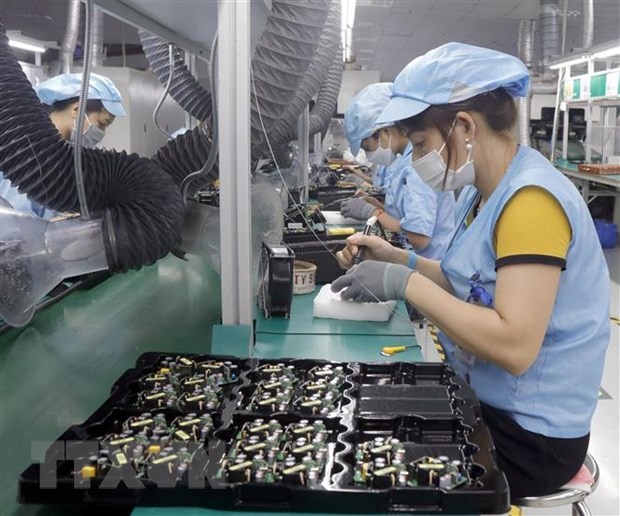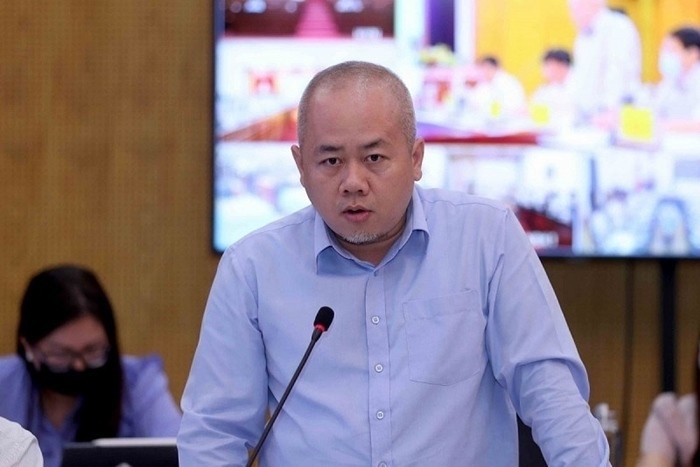(VOVWORLD) -Foreign Direct Investment (FDI) inflows are forecast to decrease this year, but FDI need for post-COVID-19 recovery and development is on the rise, forcing developing countries to compete fiercely with each other to attract foreign capital. This poses many challenges for Vietnam, but offers it an opportunity to speed up renovation.
 Workers of the Telstar Vietnam, a UK-invested company in Van Trung Industrial Park, Bac Giang province (Photo: Dong Thuy/VNA) Workers of the Telstar Vietnam, a UK-invested company in Van Trung Industrial Park, Bac Giang province (Photo: Dong Thuy/VNA) |
The world is challenged by high inflation and slow growth, and major economies continue is facing a risk of recession, geopolitical and ethnic conflicts, financial market instability, public debt, natural disasters, and climate change, slowing global investment flows and worsening the global minimum tax policy.
However, investors from the US, Europe, Japan, and South Korea remain confident in the growth potential of Vietnam’s economy and its efforts to improve its investment environment, said Furusawa Yasuyuki, General Director of AEON Vietnam.
“We believe Vietnam is now becoming an economic hub. Most of the companies operating in the south of Vietnam, not only in HCMC, but we are corporating much with Dong Nai, Binh Duong, and Ba Ria-Vung Tau. We are expected to have all the resources of these provinces, especially from the Mekong Delta,” Yasuyuki added.
Vietnam’s FDI attraction is improving, with registered capital totaling nearly 9 billion USD in the first 4 months of this year, 3.1 billion from capital contributions and share purchases, up 70%, and the number of newly registered projects up 65% from last year.
Foreign businesses are particularly interested in Vietnam's investment policy, especially in how Vietnam will apply the global minimum tax in the future, according to Choi Joo Ho, President of Samsung Vietnam.
“To say that Vietnam is the key word for the future of Korea. All of business and investment achievements have been made so far because of the consistent investment attraction policies and active support of the Vietnamese government. The Ministry of Planning and Investment constantly has policies to relax regulations on tariff preferences in line with current international requirements,” said Choi.
Echoing Choi’s opinion, Do Van Su, Deputy Director of the Foreign Investment Agency of the Ministry of Planning and Investment, said Vietnam is adjusting its investment policies and will introduce cost-based incentives to adapt to the global minimum corporate income tax.
“Vietnam’s rapid increase in total FDI attraction so far this year is attributed to huge projects worth billions of dollars. Vietnam will push solutions with three main goals in response to the global minimum tax. First, retain existing investors. Second, attract new investors. And third, balance the interests of investors,” Su noted.
To improve investment and cooperation efficiency, Vietnam encourages foreign investors to prioritize projects that use less labor, energy, land, and resources but create high added value and boost green growth, and inclusive, sustainable development of the economy.
 Deputy Minister of Planning and Investment Do Thanh Trung (Photo: vtc.vn) Deputy Minister of Planning and Investment Do Thanh Trung (Photo: vtc.vn) |
Deputy Minister of Planning and Investment Do Thanh Trung said Vietnam will see a new investment capital flow if it adopts specific strategies. To this end, Trung said Vietnam should work on new orientations, new visions, and new thinking in high-tech, green development, and sustainable growth to realize its aspirations for prosperity and improve the internal capacity and autonomy of the economy.
He added, “But this is also an opportunity for foreign investors to look for and expand business markets. I hope Vietnam and investors will achieve a win-win cooperation and can find common points for sharing difficulties and challenges.”
In order to improve the quality and efficiency of foreign investment, the Government is continuing institutional reform, improving the investment and business environment, and facilitating the business community, including foreign investors, in a spirit of harmonized benefits and shared risks.
Vietnam will also focus on developing an ecosystem of science, technology and innovation with a flexible management mechanism suitable for the digital business environment, a community of strong domestic enterprises capable of integrating internationally and forming joint ventures with foreign partners in high-tech, modern services, the processing industry, IT, and financial services.